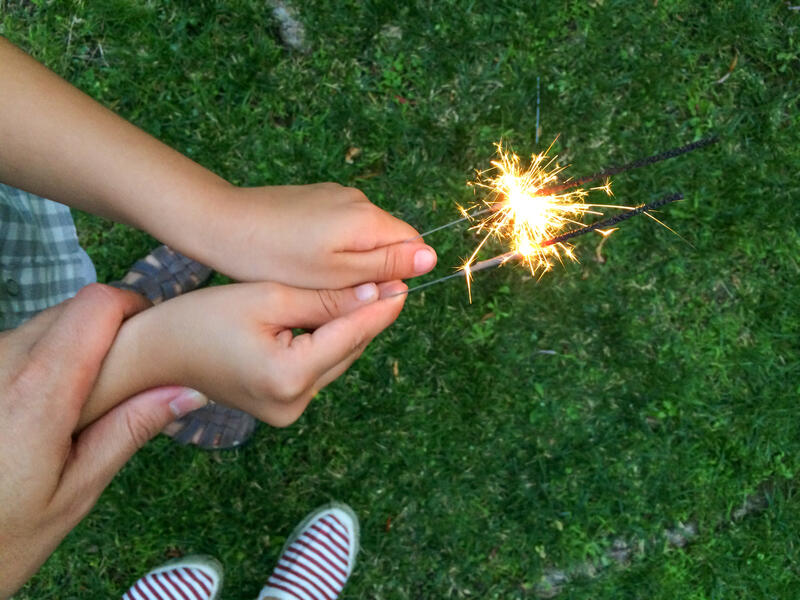The Fourth of July wouldn’t be the same without fireworks. But as a mother of four, I always have safety as a top-of-mind concern. As a hand surgeon, I see firework-related cases every year.
The best way to protect yourself from burns or injuries is to attend public fireworks shows and leave the lighting to the professionals. However, if you do use them at home, it’s important to know the potential dangers and how to safely use them so your Independence Day doesn’t result in a trip to the emergency room.
Find a location: Emergency and urgent care at Sanford Health
Typical fireworks injuries
Fireworks have been known to cause serious eye injuries, severe burns, and loss of limbs. According to the Consumer Product Safety Commission, every year about 9,700 people are injured badly enough to require medical treatment after fireworks-related incidents, and 42% of the injuries are burns.
At Sanford Health, there are typically about 230 visits to the ER each day during the week of July 4, with most of the patients being children and young adults.
About 40% of injuries we see are to the hands and fingers, specifically burns to the hands from people touching a sparkler or from fireworks going off earlier than expected.
In more serious cases, we see bigger injuries such as partial amputations, fractures, or holes through the hand. Eye injuries are also common.
Fireworks safety tips
To avoid injury, follow these tips:
- Know the laws and regulations. These can differ depending on where you live, so make sure you are aware of what is legal in your area.
- Only adults should light fireworks. Even with “safe” fireworks, such as sparklers, children need to be closely supervised. Sparklers can get up to 2,000 degrees and can easily cause burns.
- Leave the big shows to the professionals. Do not use explosive, canned fireworks, especially in a neighborhood or near a big crowd.
- Light fireworks one at a time. Putting too many sparklers together could cause a big explosion.
- Don’t use your hand as a launching pad. The firework may go off before you expect it to and cause serious injury.
- Don’t relight anything that doesn’t go off the first time. Wait a few minutes, then soak the firework in water to ensure it’s completely out.
- Don’t mix in alcohol. Lots of injuries occur after people have been drinking.
- Never use fireworks indoors. Fireworks can start fires that quickly cause destruction, loss and injury.
- Hold fireworks away from people and never point them at anyone.
- Be prepared to put out a fire by having a fire extinguisher or water nearby.
Take precautions, and consider providing safer alternatives for your Fourth of July celebration. Glow sticks, confetti poppers or colored streamers are great substitutions, especially for kids.
Learn more
- Emergency vs urgent care: The ER isn’t for everything
- Tips for keeping your cookouts and picnics safe
- First aid for burns caused by heat
…
Posted In Children's, Emergency Medicine, Health Information, Healthy Living, Orthopedics, Parenting
